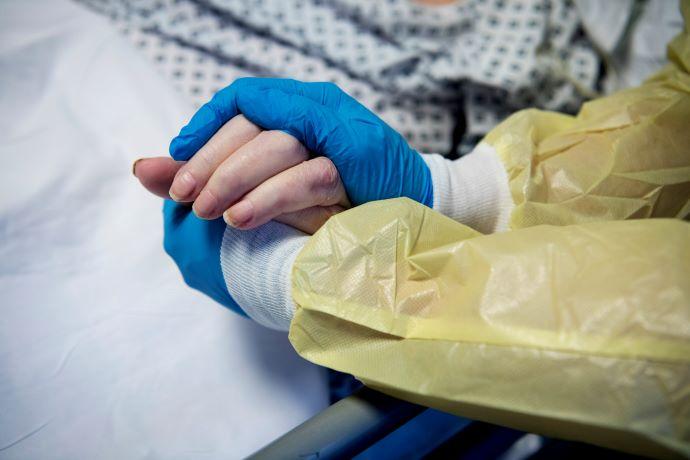Dr Rona Smith, consultant in renal medicine at Cambridge University Hospitals NHS Foundation Trust (CUH) and senior research associate at the University of Cambridge is leading the PROTECT-V trial.
So far the trial has been testing the drug Nicolsamide on around 1,400 immunocompromised patients across 40 sites. Now hundreds more patients are needed to test a second drug, Sotrovimab, which has shown promising results for treating Covid in people at high risk of disease progression1.
If proven to be safe and effective, Sotrovimab could be considered as a preventative treatment option for Covid, for patients who are immunocompromised, either due to their disease or the treatment they are receiving for their disease.
This includes patients receiving chemotherapy for cancer treatment, immunosuppressive medications for autoimmune diseases or organ transplants, or patients with immunodeficiency.
These patient are at particularly high risk from Covid and its complications, due to a reduced ability to be able to fight the virus, leading to severe infection and hospital admission. They have also been shown to have poorer responses to vaccines than healthy individuals, and so identifying a drug that provides these vulnerable patients with protection is crucial.
Dr Rona Smith chief investigator for the PROTECT-V trial, said:
“A preventative drug for the most at-risk in our populations could help to reduce hospital admissions, and potentially save many lives each year.”
“The launch of the Sotrovimab arm of PROTECT-V is a very exciting development. Not only does it add a second potential preventative drug to the platform, but also broadens inclusion beyond renal patient populations to any individual who has mounted a sub-optimal response to vaccination; fostering cross-specialty working to strengthen research.”
Dr Davinder Dosanjh, co-lead for the Sotrovimab arm of PROTECT-V and Deputy Clinical Director of Research at University Hospitals Birmingham NHS Foundation Trust (UHB), said:
“At UHB we have one of the largest cohorts of immunocompromised patients in the country who are not able to mount a protective immune response to vaccination, and so we have worked hard with our partners to design a trial which we believe will be of great benefit to them.”
“The trial will help us to understand the immune response to Covid in these individuals who mount sub-optimal vaccines responses, as well as investigating whether Sotrovimab provides a protective effect against infection.”
Hilary Fanning, Director of Research Development and Innovation at UHB, said:
“UHB are delighted to support this trial. This is a great example of NHS hospitals working collaboratively with academic and industry partners to deliver a clinical trial, which has direct and immediate relevance to the patients we care for. As the NHS hospital that has provided care for more patients with Covid than any other, we remain committed to contributing to the discovery of evidence-based treatments, to ensure we provide the best possible care for patients.”
UHB will be one of the key recruiting sites, alongside CUH. The Sotrovimab arm of the trial begins on Monday 8 August, with the first dose of Sotrovimab due to be administered at the Queen Elizabeth Hospital Birmingham. The first dose is due to be administered at CUH on Monday 15 August. There are plans to roll out to at least 20 other centres across the UK in the coming weeks.
Launched in Cambridge in February 2021, PROTECT-V (Prophylaxis for patients at risk of COVID-19 infection) is a platform study funded by GSK, and sponsored by University of Cambridge and Cambridge University Hospitals NHS Foundation Trust (CUH). It falls within the CUE-TIP (Covid-19 Understanding and Elimination-Trials Implementation Panel) portfolio, which includes research leading to the understanding and elimination of Covid.
The core PROTECT-V trial infrastructure is supported by grant awards from Kidney Research UK, LifeArc, the NIHR Cambridge BRC and Addenbrooke’s Charitable Trust. The Sotrovimab arm of the PROTECT-V study is funded by GSK.



